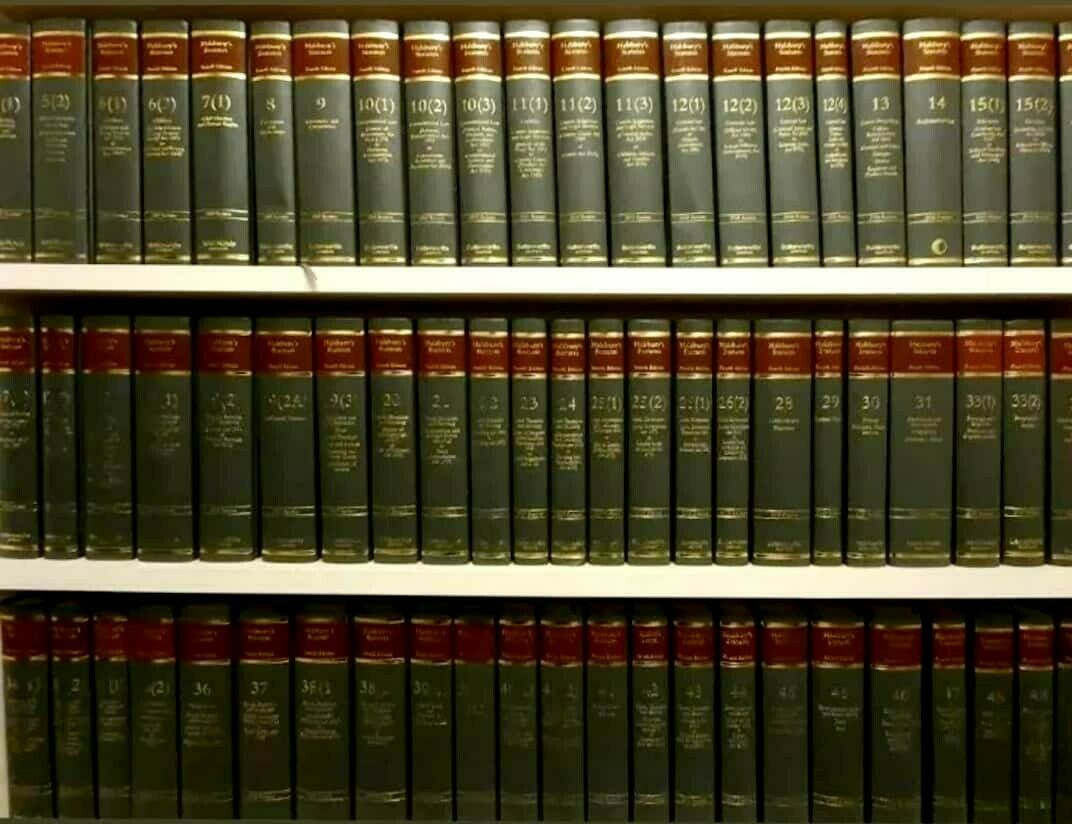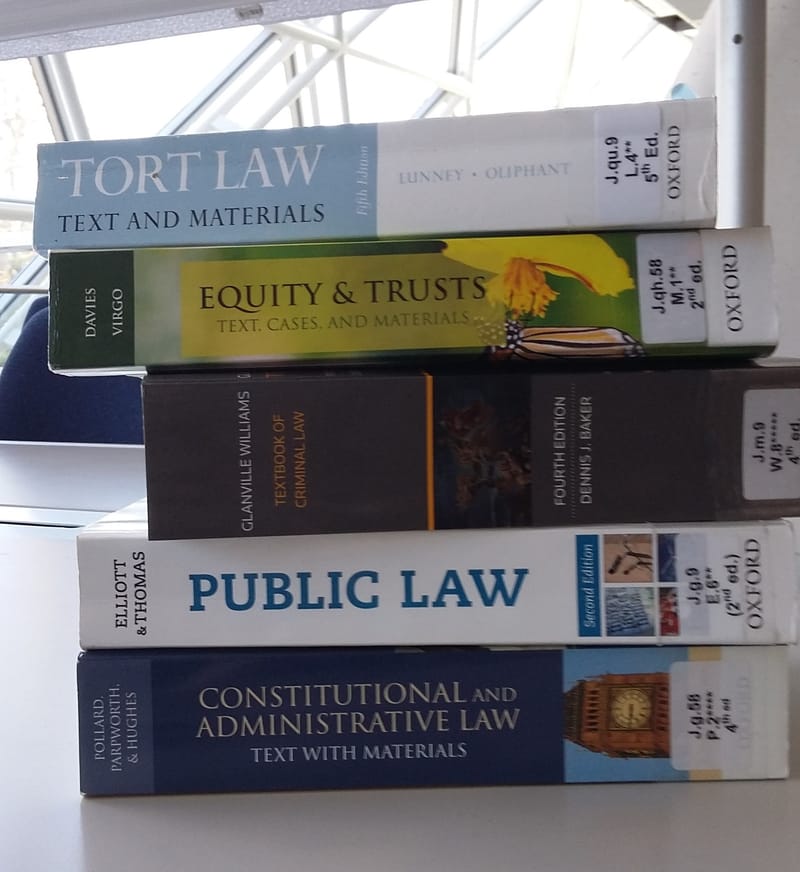We have been looking at the NHS Complaints Process, and the next step of taking your complaint to the Ombudsman. These reviews have highlighted issues that perhaps question the robustness, fairness or even bias - conscious or not, of these processes.
Let's take a look at what might help guide us, in terms of ethics and legal frameworks that may address some of these issues. We could perhaps look to our long standing legal profession for some carefully considered and debated ideas to point us in the right direction.

- There are several legal precedents that we could reference when it comes to the validity of the current system of Complaints that is being employed by the NHS.
- Let’s remember that the NHS is believed to be the single largest employer in Europe, with approximate 1.2M full-time staff equivalence. This means that they employ more than this figure, but the hours put in by all staff, from orderlies, admin staff and clinicians is equivalent to that of 1.2M full-time employees.
- For an idea of scale, another national, public body, the Police service employ approximately 120,000 full-time staff equivalence. A factor of 10 times smaller, yet it is deemed necessary and appropriate that they utilise an independent complaints service, staffed by employees who have applied specifically to take on that role, not seconded from their usual “day-job”.
- So, with the above in mind, what aspects of our legal institution are we able to draw on, to set appropriate standards for such a large organisation?
1. The guiding principle is that no one may be a judge in his own cause: nemo debet esse judex in propria causa
- As referenced in the link below*, from the published judgements from the House of Lords, I refer to the formal published opinion Lord Goff of Chieveley, in the published document: “OPINIONS OF THE LORDS OF APPEAL FOR JUDGMENT IN THE CAUSE - IN RE PINOCHET”. (Full publication as noted in ** below).
- “I am of the opinion that the principle which governs this matter is that a man shall not be a judge in his own cause--nemo judex in sua causa: see Dimes v. Grand Junction Canal (1852) 3 H.L.C. 759, 793, per Lord Campbell. As stated by Lord Campbell in that case at p. 793, the principle is not confined to a cause to which the judge is a party, but applies also to a cause in which he has an interest. Thus, for example, a judge who holds shares in a company which is a party to the litigation is caught by the principle, not because he himself is a party to the litigation (which he is not), but because he has by virtue of his shareholding an interest in the cause. That was indeed the ratio decidendi of the famous case of Dimes itself. In that case the then Lord Chancellor, Lord Cottenham, affirmed an order granted by the Vice-Chancellor granting relief to a company in which, unknown to the defendant and forgotten by himself, he held a substantial shareholding. It was decided, following the opinion of the judges, that Lord Cottenham was disqualified, by reason of his interest in the cause, from adjudicating in the matter, and that his order was for that reason voidable and must be set aside. Such a conclusion must follow, subject only to waiver by the party or parties to the proceedings thereby affected.”
- This is also reiterated by LORD HOPE OF CRAIGHEAD, in the same publication, stating “One of the cornerstones of our legal system is the impartiality of the tribunals by which justice is administered. In civil litigation the guiding principle is that no one may be a judge in his own cause: nemo debet esse judex in propria causa. It is a principle which is applied much more widely than a literal interpretation of the words might suggest. It is not confined to cases where the judge is a party to the proceedings. It is applied also to cases where he has a personal or pecuniary interest in the outcome, however small. In London and North-Western Railway Co. v. Lindsay (1858) 3 Macq. 99 the same question as that which arose in Dimes v. Proprietors of Grand Junction Canal (1852) 3 H.L.Cas. 759 was considered in an appeal from the Court of Session to this House. Lord Wensleydale stated that, as he was a shareholder in the appellant company, he proposed to retire and take no part in the judgment. The Lord Chancellor said that he regretted that this step seemed to be necessary. Although counsel stated that he had no objection, it was thought better that any difficulty that might arise should be avoided and Lord Wensleydale retired. In Sellar v. Highland Railway Co. 1919 S.C. (H.L.) 19, the same rule was applied where a person who had been appointed to act as one of the arbiters in a dispute between the proprietors of certain fishings (sic) and the railway company was the holder of a small number of ordinary shares in the railway company.
- It is clear from the above, that it is inappropriate for the NHS Trusts to both investigate and judge themselves. There is clear and historic providence for such. As stated this is the cornerstone of fairness and accountability.
2. The "Wednesbury Principle": a test for reasonableness
- Further to this key precedent, we may also cite the “Wednesbury Principle”, another legal precedent, that is still utilised in modern day legal arguments.
- In the famous case of Associated Provincial Picture Houses Limited v Wednesbury Corporation [1948] 1 KB 223, [1947] 2 All ER 680 the Court of Appeal held that Wednesbury Corporation had acted reasonably and intra vires when it granted Associated Provincial Picture Houses a licence under the Sunday Entertainments Act 1932 to show films in its cinema on a Sunday which was subject to a condition that no children under the age of 15 years should be admitted on a Sunday with or without an adult. (Ref “New Law Journal” see link *** below)
- This case introduced a test for reasonableness of an administrative decision which became known as Wednesbury unreasonableness.
- In Council of Civil Service Unions v Minister for the Civil Service [1985] AC 374, [1984] 3 All ER 935 Lord Diplock called this ‘irrationality’ and he went to say at 410: ‘By “irrationality” I mean what can by now be succinctly referred to as “Wednesbury unreasonableness”. … It applies to a decision which is so outrageous in its defiance of logic or of accepted moral standards that no sensible person who had applied his mind to the question to be decided could have arrived at it.’
- What this means in relation to the NHS Complaints process, comes to the principle of what “accepted moral standards” would be applied be a “sensible person”.
- As such, in this case, a “sensible person” would not apply in-house investigations into such serious matters, with the NHS Trusts dealing with life and death and quality of life of patients. A “sensible person” would expect high levels of professionalism of the clinicians employed to look after their well-being, and that any complaints be investigated in a fair, transparent and accountable manner. In a way where any issues of poor practice, errors or mistakes are learnt from, and the issues put right for the patient. The welfare of the patient being the focus of what a “sensible person” would expect.
3. The General Medical Council's: Professional Duty of Candour
- What other guiding principles can we call upon to formulate an appropriate and proportionate system, that guides fairness, to both staff and patients where a complaint has been raised? We cold perhaps look at guidance published by the General Medical Council (GMC). (Ref General Medical Council website – link **** below)
- Under “Domain 2: Patients, partnership and communication” and the heading “Being open if things go wrong” the GMC states the following:
- You must be open and honest with patients if things go wrong. If a patient under your care has suffered harm or distress, you must follow our guidance on Openness and honesty when things go wrong: the professional duty of candour, and you should:
- put matters right, if possible.
- apologise (apologising does not, of itself, mean that you are admitting legal liability for what’s happened).
- explain fully and promptly what has happened and the likely short-term and long-term effects.
- report the incident in line with your organisation’s policy so it can be reviewed or investigated as appropriate – and lessons can be learnt and patients protected from harm in the future.
4. The use of "similar fact evidence"
- The use of Similar Fact evidence has been part of our legal system in excess of 100 years. The details of what it is, and when it is applicable, noted below, are extracted from the House of Commons website - as linked below*****
- The modern similar fact principle was formulated in the case of Makin v. Attorney General for New South Wales, 1894 (AC 57, 65). In this case Lord Herschell reaffirmed the presumption that similar fact evidence would not normally be admitted. He went on to outline the exceptional circumstances in which this exclusionary principle could be overridden. Evidence of similar facts could not be admitted merely because it seemed relevant to the count on the indictment, but only if it was both relevant and probative.
- In Makin (1894) the two defendants, a husband and wife, were accused of murdering a baby they had fostered. In their trial evidence was offered of a number of other murders they had apparently committed. The admissibility of the similar fact evidence in this case turned on the improbability of there being any innocent explanation for the presence of the bodies of 12 other fostered infants buried in the gardens of premises previously occupied by the defendants.
- The use of such similar fact evidence, as noted above, should be both relevant and probative. It is our stance that the use of such evidence, the use of the lived-experiences of all complainants to NHS Trusts and to the PHSO, when viewed together show the endemic and systematic strategy and culture being employed within the NHS. The NHS, in this context being the "defendant", rather than an individual clinician, or even a specific NHS Trust.
- It is evident that the strategies employed across the board, across all NHS Trusts can be evidenced, both as relevant and probative, when looking at the approach and strategy being taken when dealing with complaints.
- Taken purely in isolation, the patient / complainant finds themselves trying to battle and argue their position against an organisation, with almost limitless legal resources and financial support. As such, in isolation the singular complainant is at a distinct disadvantage, even before the rules of engagement that are set by the NHS Trusts is taken into consideration.
- However, when similar fact evidence is considered, the lack of independence, and favourable strategies employed can be seen for what they are. Unfair, dishonest and unaccountable. These values should be inherent and key to all investigations into complaints.
- All of these guidelines seem to go against the lived-experience of the contributors to this group, and the ethos that is portrayed by the NHS Trust complaints process.
* House of Lords - In Re Pinochet (parliament.uk) – Quoted section
** House of Lords - In Re Pinochet (parliament.uk) – Full Publication
*** Wednesbury unreasonableness: alive & kicking? | New Law Journal | The leading weekly legal magazine
**** Domain 2 Patients partnership and communication - GMC (gmc-uk.org)
***** House of Commons - Home Affairs - Memoranda (parliament.uk)
